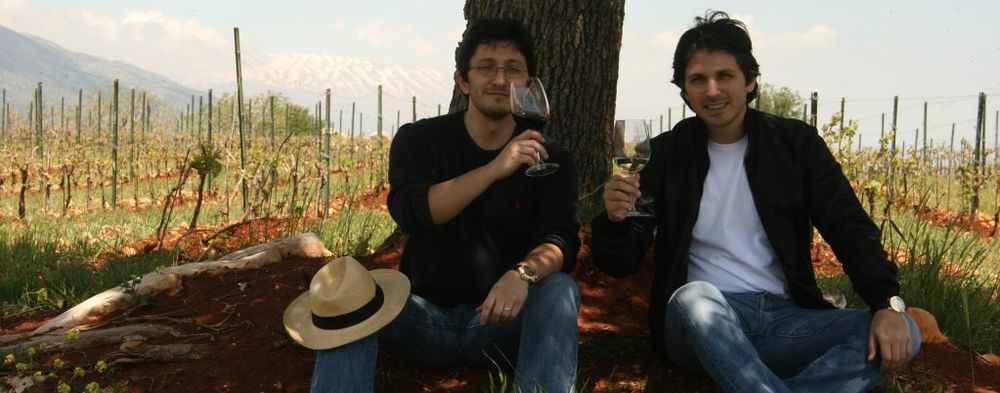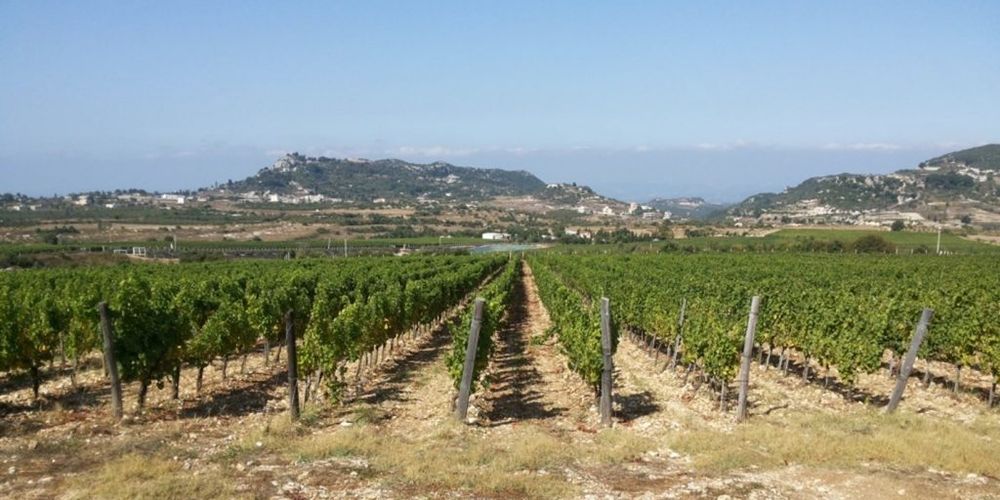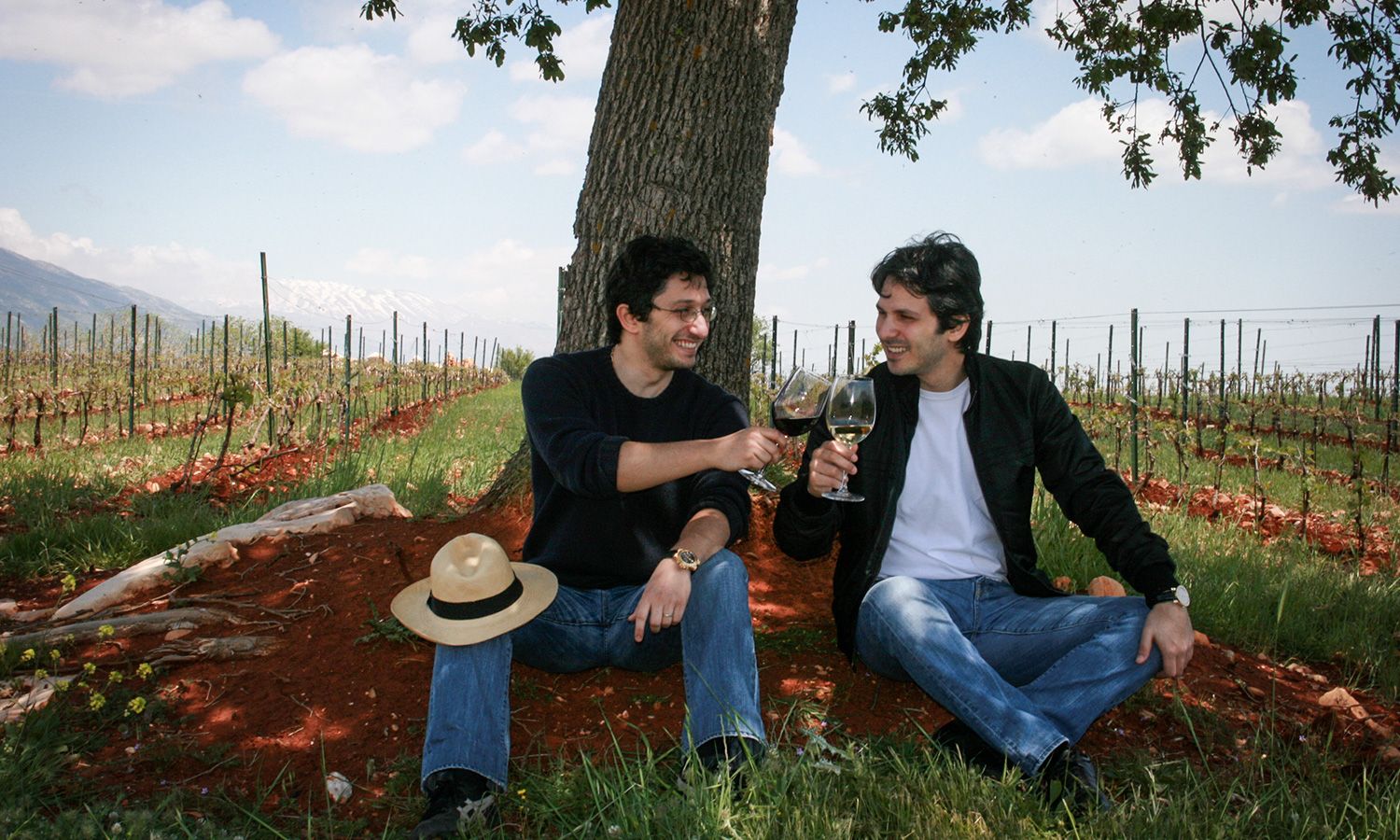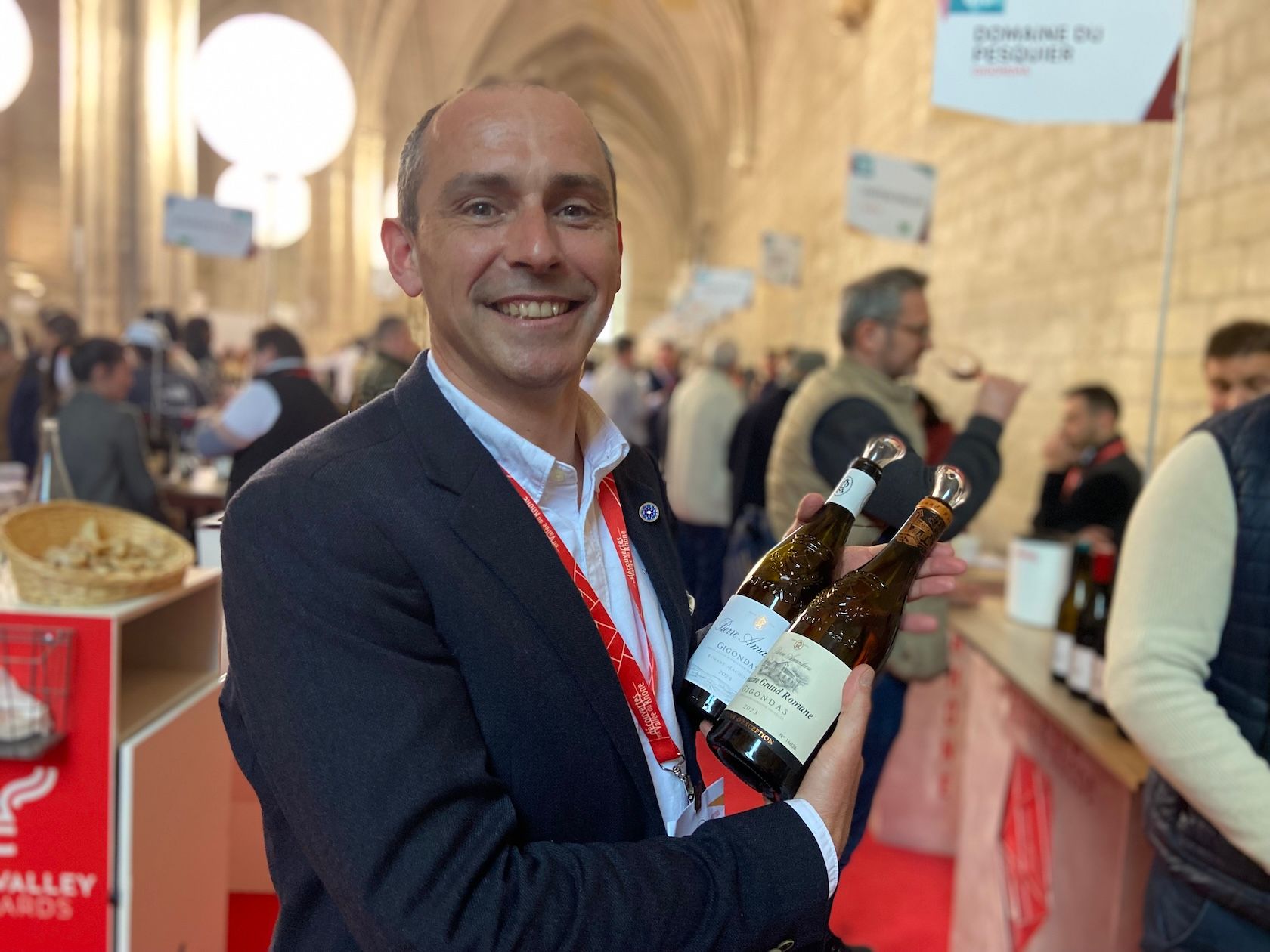Next time a winemaker complains about the dangers of frost, hail or drought damaging their vines, they should perhaps share a thought for the two brothers and winemakers behind Domaine Bargylus, Syria’s only operational, and internationally famous producer.
For the past seven years, while Syria’s civil war has been raging, while millions of its people have been fleeing to Europe to escape the fighting and the savagery, and while ISIS has been grabbing global headlines with its medieval machinations, two Syrian brothers have been making what Jancis Robinson, in her last World Atlas of Wine, has called “the finest wine produced in the Eastern Mediterranean”.
Domaine Bargylus is located in the hills above the northern Syrian port city of Latakia, where owners Sandro and Karim Saade, who also own the hugely impressive Château Marsyas in Lebanon, have had only intermittent access to their vines because of the hostilities, which on more than one occasion have come within meters of their winery. And yet Domaine Bargylus – there’s a red and a white – can be found on the some heavy hitting wine lists in England, (where they are represented by H2Vin), France and Japan.
Despite its complex relationship with booze, the Middle East has always proved fertile ground for winemaking bravura. The late Serge Hochar, the late owner of Château Musar, made his reputation during the Lebanese civil war, but back in 2003, when the Saade brothers began their wine adventure, Syria wasn’t as volatile as Lebanon, and hopes were high that they could produce the country’s first world-class wine.
Half Lebanese and half Syrian, from an old Latakian trading family, they felt that the cooler, sea facing slopes of Jabal Ansarrieh would deliver a different expression of terroir to that of Lebanon’s Bekaa Valley. Admittedly, it wasn’t the easiest place to produce wine – there was no modern winemaking culture and the country was gripped by mind-bending bureaucracy – but looking back, it was a golden age when set along side the tragedy of the civil war.

Sandro and Karim Saade are united in making wine where they want whatever the difficulties.
Up against it
“The odds are against us now,” explains Sandro Saade speaking from the Bekaa Valley, the 2,000 square kilometer plateau that abuts the Syrian border. “I doubt there is a winemaker in the world who faces the same logistical challenges as we do.” Over his shoulder, the Anti-Lebanon mountains and road to Damascus can be seen in the shimmering heat. “But we, the people of this region, have always adapted. The civil war in Lebanon created a sense of resilience. We don’t give up.”
Before 2011, Domaine Bargylus wines only had to make the simple overland trip to the Lebanese capital Beirut before being shipped abroad, but now they have to make an astonishingly complicated journey from Latakia to Port Said in Egypt and then back to Beirut, before being heading off to Belgium. But all that’s relatively straightforward. In Syria, winery equipment is difficult to source and spare parts have to be discreetly brought in by taxi, while the actual winemaking process is essentially made over the Internet with the resident winemaker, when he’s not trying to stay alive, having to post images of grapes and vines for the brothers to assess. Samples of grapes and the finished wines have to make the perilous journey to Beirut, again by taxi via Syria’s northern border.
Lebanon’s winemaking war veterans no doubt feel the Saade brothers’ pain. During the 75-90 civil war, on top of all the logistical headaches, they faced the risk of random kidnapping and mock executions. “We had problems with transporting our grapes overland and we had trouble shipping our wines overseas,” Hochar told me in 2003. “But that is war. 1983 was a particularly bad year. You cannot imagine how many routes we used that year to get past the various militias.”

The brothers operate both Domaine Bargylus in Syrah and Chateau Marsyas in Lebanon’s Bekaa Valley.
Lebanese troubles
Nearly three decades after the end of those hostilities, Lebanon’s security remains shaky, despite periods of economic growth. The Bekaa Valley is an area where the militant Shia Hezbollah runs the show; where heavily armed drug lords who harvest the swathes of hash crops and poppy fields roam with impunity and where the Lebanese army is currently fighting a low intensity war with ISIS fighters holed up on the Anti-Lebanon. Napa it’s not; so it wasn’t surprising therefore that when the brothers began their wine ventures, it was Château Marsyas that they thought might be at most risk from instability. Syria by comparison was rock solid.
That said Chateau Marsyas has flourished, carving out a niche at home and abroad and is one of a handful of wines that have convinced the often sniffy Lebanese consumers that their wines can compete with the best in the world. The brothers have added the eponymous, B-Qã, a diffusion red and white, and there are plans to launch a Cab varietal.
Faced with the prospect of years of instability, the brothers’ philosophy was, and still is, straightforward.
“In the Middle East, yes, we live between heaven and hell, but we are used to it. We have chosen our land and our life and we are committed even during the heaviest fighting and the darkest of times,” says Sandro as we tuck into a lunch of white cheese, tomato and cucumbers washed down with one of his Château Marsyas white, a Chardonnay and Sauvignon Blanc blend.
“In any case, we have a duty to set an example of hard work and innovation and lay the foundations for an industry that we hope that with peace will flourish. Syria and Lebanon can produce wine to match the best in the world.”
Reds
Château Marsyas 2013: A complex, brooding nose of bramble, licorice and spice. Full bodied with integrated tannins and good acidity. Flavours of red cherry, pepper, prune and kirsch.
Domaine Bargylus 2011: A fresh, mineral nose of black cherry and white pepper. Palate shows more minerality, excellent acidity with the alcohol and tannins nicely integrated. Flavours of blackcurrant, fig and plum. A sustained and smooth finish.
Whites
Château Marsyas 2016: Chardonnay and Sauvignon Blanc: Unoaked. Flavours of citrus, stone fruit, summer flowers and a hint of nuttiness. Full, rounded and lovely balance with pleasing crunch.
Domaine Bargylus 2012: Chardonnay and Sauvignon Blanc. No wood. Amazing ageing arc with acidity (and colour) that belies its age. Magnificent terroir. Good “fat”. Lemon, blood orange and white flowers with a hint of nuts and honey.








































